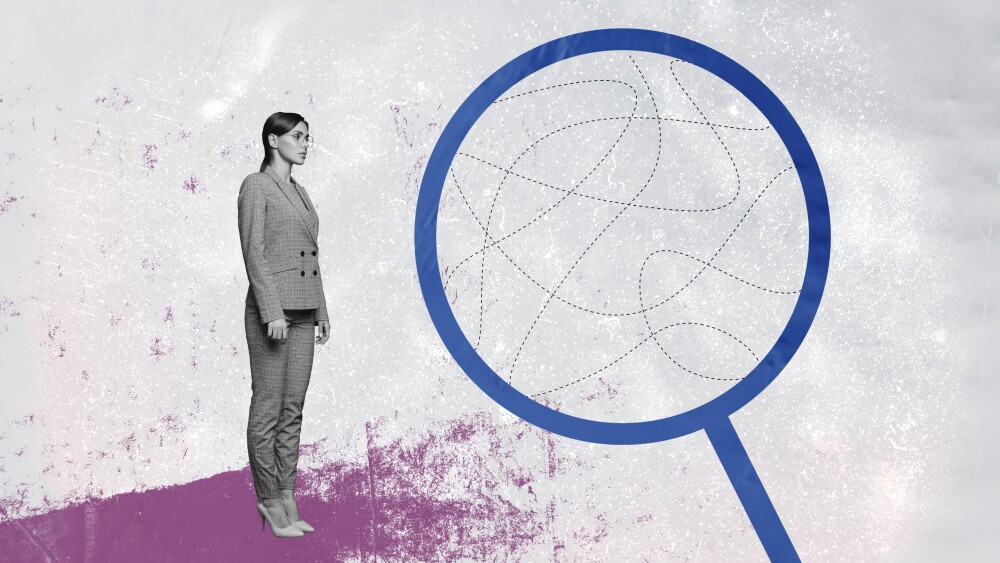There were no significant changes in HBV or HCV viral load during study treatment. Tivozanib was generally well tolerated at 1.0 mg daily, with adverse events consistent with those observed in previous tivozanib trials.
Poster Presentation Delivered at the 2018 American Society of Clinical Oncology (ASCO) Gastrointestinal Cancers Symposium
CAMBRIDGE, Mass.--(BUSINESS WIRE)-- AVEO Oncology (NASDAQ:AVEO) today announced the presentation of data from a multicenter, Phase 1b/2 study of FOTIVDA® (tivozanib), a potent, selective, long half-life inhibitor of all three vascular endothelial growth factor (VEGF) receptors, in patients with advanced, unresectable hepatocellular carcinoma (HCC). The data were presented during a poster session titled, “Phase 1b/2 study of tivozanib in patients with advanced inoperable hepatocellular carcinoma” (Abstract #364) at the 2018 American Society of Clinical Oncology (ASCO) Gastrointestinal Cancers Symposium held January 18-20, 2018 in San Francisco. A copy of the presentation is available at www.aveooncology.com.
“Advanced HCC represents an area of high unmet need, with the limited number of currently available therapies often associated with increased levels of hepatotoxicity, further complicating effective treatment,” said Michael Needle, MD, chief medical officer of AVEO. “Findings from this study suggest that low doses of tivozanib may yield comparable PFS and a favorable response rate to current first line standards of care for HCC patients, with a favorable safety profile which may enable therapeutic combinations with immunotherapy. We expect the clinical investigation of the combination of VEGF and checkpoint inhibition to be the next critical step forward for the treatment of HCC. We look forward to reporting preliminary Phase 2 data from the TiNivo combination trial of tivozanib and nivolumab in the lead indication of renal cell cancer at the upcoming ASCO GU conference, and to exploring options for pursuing similar combinations in HCC.”
The study, designed to evaluate the safety and efficacy of tivozanib in advanced HCC, enrolled a total of 21 patients at three study sites. In the Phase 1b portion of the trial, which used a modified 3+3 dose escalation design, 8 patients were dosed with tivozanib starting at 1.0 mg daily for 21 days followed by 7 days off drug, with inter-patient escalation to 1.5 mg daily or de-escalation to 0.5 mg daily based on cumulative dose-limiting toxicities (DLT). Upon escalation to 1.5 mg, two patients had on target dose limiting toxicities (grade 3 mucositis and hypertension), which were likely due to the high potency of tivozanib, and came off study without completing the DLT period. Tivozanib at 1.0 mg daily was selected for the Phase 2 expansion portion and was well tolerated.
Of 19 evaluable patients, at a median follow up of 16.9 months, the study’s primary endpoint of median progression-free survival (PFS) and PFS at week 24 were 5.5 months and 47%, respectively. A partial response (PR) was seen in 4/19 patients (21%) and stable disease (SD) in 8/19 patients (42%), for a disease control rate (DCR) of 63%. Overall survival (OS) at 6 and 12 months was 58% and 25%, respectively, with a median OS of 7.5 months. Notably, 4 patients have maintained SD for over two years. There were no significant changes in HBV or HCV viral load during study treatment. Tivozanib was generally well tolerated at 1.0 mg daily, with adverse events consistent with those observed in previous tivozanib trials.
The Phase 1b/2 study was one of several studies funded by a grant provided to the National Comprehensive Cancer Network from AVEO.
About Tivozanib (FOTIVDA®)
Tivozanib (FOTIVDA®) is an oral, once-daily, vascular endothelial growth factor (VEGF) tyrosine kinase inhibitor (TKI) discovered by Kyowa Hakko Kirin and approved for the treatment of adult patients with advanced renal cell carcinoma in the European Union plus Norway and Iceland. It is a potent, selective and long half-life inhibitor of all three VEGF receptors and is designed to optimize VEGF blockade while minimizing off-target toxicities, potentially resulting in improved efficacy and minimal dose modifications. Tivozanib has been investigated in several tumors types, including renal cell, colorectal and breast cancers.
About AVEO
AVEO Oncology (AVEO) is a biopharmaceutical company dedicated to advancing a broad portfolio of targeted therapeutics for oncology and other areas of unmet medical need. The Company is focused on seeking to develop and commercialize its lead candidate tivozanib, a potent, selective, long half-life inhibitor of vascular endothelial growth factor 1, 2 and 3 receptors, in North America as a treatment for renal cell carcinoma and other cancers. AVEO is leveraging multiple partnerships aimed at developing and commercializing tivozanib in oncology indications outside of North America, and at progressing its pipeline of novel therapeutic candidates in cancer and cachexia (wasting syndrome). Tivozanib (FOTIVDA®) is approved by the European Commission for the treatment of adult patients with advanced renal cell carcinoma (RCC) in the European Union plus Norway and Iceland. For more information, please visit the company’s website at www.aveooncology.com.
Cautionary Note Regarding Forward-Looking Statements
This press release contains forward-looking statements of AVEO that involve substantial risks and uncertainties. All statements, other than statements of historical fact, contained in this press release are forward-looking statements. The words “anticipate,” “believe,” “expect,” “intend,” “may,” “plan,” “potential,” “could,” “should,” “would,” “seek,” “look forward,” “advance,” “goal,” “strategy,” or the negative of these terms or other similar expressions, are intended to identify forward-looking statements, although not all forward-looking statements contain these identifying words. These forward-looking statements include, among others, statements about: clinical, regulatory and commercial plans of AVEO and its partner EUSA Pharma with respect to tivozanib (FOTIVDA®); the expected timeline for reporting data from TIVO-3 and TiNivo; the role and expected benefits of tivozanib and other VEGF TKIs on a stand-alone basis, or in combination with or following immunotherapy; the value of AVEO's partnerships in advancing its pipeline; and AVEO’s strategy, prospects, plans and objectives, including as they pertain specifically to tivozanib. AVEO has based its expectations and estimates on assumptions that may prove to be incorrect. As a result, readers are cautioned not to place undue reliance on these expectations and estimates. Actual results or events could differ materially from the plans, intentions and expectations disclosed in the forward-looking statements that AVEO makes due to a number of important factors, including risks relating to AVEO’s ability to enter into and maintain its third party collaboration agreements, and its ability, and the ability of its licensees and other partners, to achieve development and commercialization objectives under these arrangements; AVEO’s ability, and the ability of its licensees, to demonstrate to the satisfaction of applicable regulatory agencies the safety, efficacy and clinically meaningful benefit of AVEO’s product candidates, including tivozanib. AVEO faces other risks relating to its business as well, including risks relating to its ability to successfully enroll and complete clinical trials, including the TIVO-3 and TiNivo studies; AVEO’s ability to achieve and maintain compliance with all regulatory requirements applicable to its product candidates; AVEO’s ability to obtain and maintain adequate protection for intellectual property rights relating to its product candidates and technologies; developments, expenses and outcomes related to AVEO’s ongoing shareholder litigation; AVEO’s ability to successfully implement its strategic plans; AVEO’s ability to raise the substantial additional funds required to achieve its goals, including those goals pertaining to the development and commercialization of tivozanib; unplanned capital requirements; adverse general economic and industry conditions; competitive factors; and those risks discussed in the section titled “Risk Factors” and “Management’s Discussion and Analysis of Financial Condition and Results of Operations—Liquidity and Capital Resources” included in AVEO’s Annual Report on Form 10-K for the year ended December 31, 2016, its quarterly reports on Form 10-Q and in other filings that AVEO may make with the SEC in the future. The forward-looking statements in this press release represent AVEO’s views as of the date of this press release. AVEO anticipates that subsequent events and developments may cause its views to change. While AVEO may elect to update these forward-looking statements at some point in the future, it specifically disclaims any obligation to do so. You should, therefore, not rely on these forward-looking statements as representing AVEO's views as of any date other than the date of this press release.
View source version on businesswire.com: http://www.businesswire.com/news/home/20180119005483/en/
Source: AVEO Oncology






